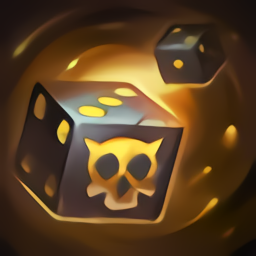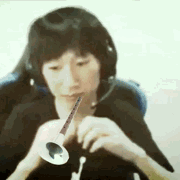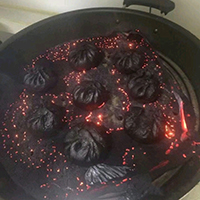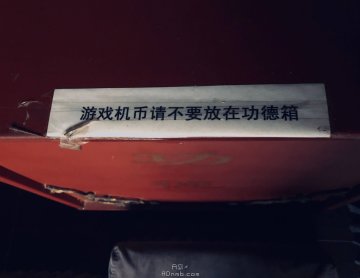【跑团机制研究与收录/Bog版】
【有趣团讨论与推荐】
[ ゚∀。]总而言之,还是用这张图吧。
【有趣团讨论与推荐】
[ ゚∀。]总而言之,还是用这张图吧。
🎉
2
#807169
总之喝茶听课[ ゚∀。]旦
#807219
海文top化了(悲)
#807336
[ ゚∀。]旦
没有创作激情了(悲)
没有创作激情了(悲)
#807342
[ ゚∀。]旦
#807397
>>Po.807336
[・∀・]不如歇一段时间
[・∀・]不如歇一段时间
#807430
>>Po.807397
然后他就开了新团[ ゚∀。]
然后他就开了新团[ ゚∀。]
#807445
>>Po.807430
再然后我就把新团咕了。
这些事都发生在一个小时内。
再然后我就把新团咕了。
这些事都发生在一个小时内。
#807587
More precisely, for whoever has the job of saying what happens next (meaning "now"), what do they use to formulate what to say? What are their tools and raw materials for doing so? Specifically and most painfully:
更准确地说,对于那些要说出接下来(也就是现在)要发生什么的人,他们要用什么表述?他们有什么工具和原料?具体地说——最痛苦地说——他们应当:
Without being trapped in the past, i.e., any prepared presumption of what will happen during play
·不被过去所束缚,既,不被对团中将发生的事情做的任何提前准备束缚。
Without being trapped in the future, i.e., asking stupid questions like "what will be the most interesting" and developing something to play toward
·不被未来所束缚,既,不要问这种蠢问题:“什么会是最有趣的”——然后就为往那边发展做准备。
In practice, you (single or plural, whoever has this job) simply have to say what happens. But without falling into those familiar and oh-so-comfortable traps, how, how, how, how? For any "next now," at any scale, the situation is the key. One must reference how the situation has or is about to be affected. The answer might be "a lot," which is great. It might be "not much," which is still good and useful because your "next now" doesn't have to be drastic, i.e., it may remain confined to immediate concerns for the characters.
在实践中,你,或者你们,只要简单地描述发生的事情。不要落入那些熟悉而又舒适的陷阱——how?how?how?how?对于所有的“接下来”,都只要抓住最重要的“现状”。抓住那些已经发生和即将发生的事情,答案可能是“很多”,那很好;也可能是“不太多”,但也足够好、足够用了。因为“接下来”并不必须非常广大,既,它只需要继续保持对角色的直接关注。
更准确地说,对于那些要说出接下来(也就是现在)要发生什么的人,他们要用什么表述?他们有什么工具和原料?具体地说——最痛苦地说——他们应当:
Without being trapped in the past, i.e., any prepared presumption of what will happen during play
·不被过去所束缚,既,不被对团中将发生的事情做的任何提前准备束缚。
Without being trapped in the future, i.e., asking stupid questions like "what will be the most interesting" and developing something to play toward
·不被未来所束缚,既,不要问这种蠢问题:“什么会是最有趣的”——然后就为往那边发展做准备。
In practice, you (single or plural, whoever has this job) simply have to say what happens. But without falling into those familiar and oh-so-comfortable traps, how, how, how, how? For any "next now," at any scale, the situation is the key. One must reference how the situation has or is about to be affected. The answer might be "a lot," which is great. It might be "not much," which is still good and useful because your "next now" doesn't have to be drastic, i.e., it may remain confined to immediate concerns for the characters.
在实践中,你,或者你们,只要简单地描述发生的事情。不要落入那些熟悉而又舒适的陷阱——how?how?how?how?对于所有的“接下来”,都只要抓住最重要的“现状”。抓住那些已经发生和即将发生的事情,答案可能是“很多”,那很好;也可能是“不太多”,但也足够好、足够用了。因为“接下来”并不必须非常广大,既,它只需要继续保持对角色的直接关注。
#807618
>>Po.807587
我总感觉uog这一大段是在唱歌剧
我总感觉uog这一大段是在唱歌剧
#808656
>>Po.807618
・゚[ ノヮ´ ]
・゚[ ノヮ´ ]
#808688
>>Po.807618
・゚[ ノヮ´ ]草,确实有那味
・゚[ ノヮ´ ]草,确实有那味
#809490
[ ゚∀。]好多文笔优秀跟剧情节奏特别棒的团主都在NGA写安科。
#809603
>>Po.809490
推荐几个[ ゚∀゚]?一直感觉NGA那个页面看得有点难受就没看
推荐几个[ ゚∀゚]?一直感觉NGA那个页面看得有点难受就没看
#809615
#809617
#809618
#809621
[ ゚∀。]我基本看的都是方舟的安科。
#809665
龙族那边也有写的很好的安科[ ゚∀。]
#809667
[ ゚∀。]方舟的话,我记得还有个科西切为主视角的安科也写的很好
#809713
>>Po.809665
[ ゚∀。]推荐一部?
[ ゚∀。]推荐一部?

















